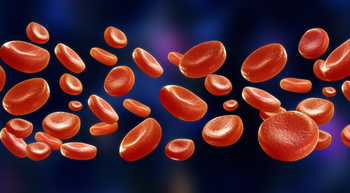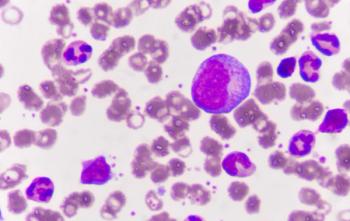
Patient K.C.'s transition from high-risk care to invasive mammary carcinoma treatment under the care and support of a breast cancer advanced practice provider.

Patient K.C.'s transition from high-risk care to invasive mammary carcinoma treatment under the care and support of a breast cancer advanced practice provider.

Age and having children were found to affect whether premenopausal women with breast cancer opted for fertility preservation.

Risvutatug rezetecan, an antibody-drug conjugate was granted FDA orphan drug designation for use in patients with small cell lung cancer.

Melinda Mayorga, RN, MSN, CNS, AGCNS-BC, OCN, discusses end-of-life care from a multidisciplinary perspective.

Oncology nurses and APPs are key players in patient education on precision medicine.

Subcutaneous mosunetuzumab wins FDA accelerated approval in patients with R/R follicular lymphoma following 2 or more lines of systemic therapy.

Breast cancer survivors improved cognitive outcomes with both real and sham acupuncture, but real acupuncture showed greater gains.

As CAR T-cell therapy expands to solid tumors, oncology nurses play a key role in monitoring, educating, and supporting patients.

Giredestrant displayed a safety profile consistent with prior findings and had a lower rate of discontinuation compared with standard endocrine therapy.

Frontline maintenance tucatinib plus trastuzumab and pertuzumab increased progression-free survival in patient with HER2-positive metastatic breast cancer.

The FDA has approved the use of subcutaneous amivantamab and hyaluronidase-lpuj across all amivantamab indications.

The FDA has greenlit treatment with rucaparib for previously treated patients with BRCA-mutated metastatic castration-resistant prostate cancer.

A mobile health intervention was linked with an increase in general and cancer-specific QOL in adolescent and young adult breast cancer survivors.

Hormone replacement therapy was associated with a lower risk of developing BRCA1– or BRCA2–mutated breast cancer among those already at higher risk.

The treatment combination of T-DXd and pertuzumab was granted FDA approval in the first-line for unresectable or metastatic HER2-positive breast cancer.

The FDA has approved niraparib and abiraterone acetate with prednisone for the treatment of patients with BRCA2-mutated metastatic hormone-sensitive prostate cancer.

Subcutaneous daratumumab plus teclistamab improved survival outcomes in patients with R/R multiple myeloma vs standard daratumumab-based regimens.

Preoperative radiation and pembrolizumab improved T-cell infiltration in patients with higher-risk, HR-positive, HER2-negative, early-stage breast cancer.

Phase 2 data demonstrated similar pharmacokinetic profiles between subcutaneous azacitidine and an oral combination of azacitidine and cedazuridine.

The use of sacituzumab govitecan to treat HR+/HER2– metastatic breast cancer did not reach its primary end point of progression-free survival.

Patients with relapsed/refractory large B-cell lymphoma treated with glofitamab or epcoritamab experienced early disease progression.

Lillian Rodich, PA-C, MPH, discusses how integrative oncology can give patients practical strategies for managing symptoms, regardless of financial barriers.

Six-month complete response with frontline axicabtagene ciloleucel predicts long-term survival in patients with high-risk large B-cell lymphoma.

Dexamethasone reduced the severity of ICANS but did not impact the rates of ICANS or CRS in patients with LBCL receiving axi-cel.

Phase 3 trial results demonstrated a significant benefit with the BTK inhibitor pirtobrutinib vs bendamustine plus rituximab in patients with untreated CLL/SLL.

Subcutaneous bispecific antibody cevostamab demonstrated early efficacy and safety in patients with relapsed or refractory multiple myeloma.

Pirtobrutinib demonstrated noninferior response rates to ibrutinib and showed a trend toward survival benefit in patients with CLL/SLL.

Patients with AML receiving azacitidine and venetoclax had significantly higher quality of life than those receiving intensive induction chemotherapy.

Blinatumomab/ponatinib increased efficacy, and response rates were improved in patients with Philadelphia-positive acute lymphoblastic leukemia.

The addition of epcoritamab to R2 significantly reduced the risk of death or disease progression in patients with relapsed/refractory follicular lymphoma.